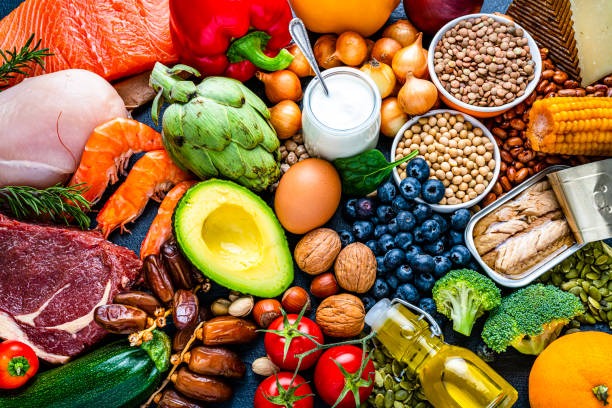What essential nutrients should you include in your daily diet


Essential Nutrients: Fueling Your Body with Nature's Goodness
Our bodies, like intricate machines, require a steady supply of essential nutrients to function optimally. These nutrients, the building blocks of life, play crucial roles in maintaining our health, supporting growth and development, and protecting us from diseases.
1. Carbohydrates: The Energy Powerhouses
Carbohydrates, the primary energy source for our bodies, provide fuel for our muscles, brain, and other organs. Whole grains, fruits, vegetables, and legumes are excellent sources of complex carbohydrates, which provide sustained energy and release slowly into the bloodstream.
2. Protein: The Building Blocks of Life
Protein, the structural component of our bodies, is essential for building and repairing tissues, muscles, bones, and enzymes. Lean meats, poultry, fish, eggs, dairy products, legumes, and nuts are rich sources of protein.
3. Fats: The Essential Energy Reserves
Fats, often demonized, are essential for various bodily functions, including energy storage, hormone production, and insulation. Healthy fats, found in avocados, nuts, seeds, and olive oil, provide essential fatty acids that our bodies cannot produce.
4. Vitamins: The Micronutrient Marvels
Vitamins, essential for various bodily processes, act as catalysts in many chemical reactions. Vitamin A is crucial for vision and immunity, vitamin C supports collagen production and immune function, and vitamin D is essential for bone health.
5. Minerals: The Inorganic Masters
Minerals, inorganic nutrients, play essential roles in various bodily functions. Calcium is crucial for bone health, iron is essential for oxygen transport, and potassium regulates blood pressure.
Essential Nutrients for Optimal Health
Here's a breakdown of essential nutrients and their sources:
Carbohydrates: Whole grains, fruits, vegetables, legumes
Protein: Lean meats, poultry, fish, eggs, dairy products, legumes, nuts
Healthy Fats: Avocados, nuts, seeds, olive oil
Vitamin A: Red and orange fruits and vegetables, leafy greens, dairy products
Vitamin C: Citrus fruits, berries, bell peppers, broccoli
Vitamin D: Fatty fish, egg yolks, fortified milk, sunlight exposure
Calcium: Dairy products, leafy greens, fortified foods
Iron: Red meat, poultry, fish, beans, lentils, fortified cereals
Potassium: Bananas, potatoes, sweet potatoes, beans, lentils
Incorporating Essential Nutrients into Your Diet
Aim for a balanced diet that includes a variety of nutrient-rich foods from all food groups. Prioritize whole, unprocessed foods over processed options, which may be high in calories, unhealthy fats, and added sugars.
Fill half your plate with fruits and vegetables
Choose whole grains over refined grains
Incorporate lean protein sources
Include healthy fats in moderation
Limit processed foods, sugary drinks, and excessive saturated and unhealthy fats
Remember, your nutritional needs may vary based on your age, gender, activity level, and overall health. Consult a registered dietitian or nutritionist for personalized guidance on incorporating essential nutrients into your diet and optimizing your overall health.